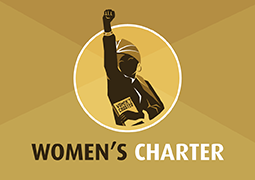
Date: 08 December 2022
Time: 11h00
Venue: Olive Convention Centre
Premier of KwaZulu-Natal
Speaker, KwaZulu Natal Provincial Legislature
Provincial Executive Council of KwaZulu-Natal
Members of Parliament
Members of the Provincial Legislature
Mayors of Local Municipalities
Commissioner for the Financial Fiscal Commission
Commissioner for Gender Equality Commission
Ladies and Gentlemen
It is an honour to welcome all of you to the Women’s Charter Report Back Session. As guided by the overarching resolutions of the Women’s Parliament to undertake an extensive review of the 1994 Women’s Charter for effective Equality, a review process was undertaken, in order to assess the efficacy of existing systematic and institutional mechanisms across the spheres of government, to advance gender equality.
The newly developed Women’s Charter for Accelerated Development, which encompasses 15 strategic objectives and a set of broad priority actions, appropriately encompasses the invaluable inputs received from all sectors of society.
During the review process, the women of South Africa demanded that we establish clear roles, responsibilities, mandates and lines of accountability of key government and oversight bodies in implementing gender mainstreaming initiatives.
The women gathered here today, further demand of us to be resolute in our commitments to re-engineer systematic and institutional arrangements across the three spheres of government, to improve women’s quality of life. We must ensure that we advance policy-redesign, planning, budgeting and implementation practices, to advance gender transformation.
Honourable Members
Gender Equality is a fundamental human right and an essential prerequisite for achieving a gender equitable society. Legislative change must be accompanied not only by policy measures that promote this Constitutional principle, but they should result in the implementation of gender equity across all sectors of society and our starting point is to extensively review the Amendment of the National Gender Policy Framework as proposed by the Commission for Gender Equality.
We must do away with the inability of the state to implement its noble ideals, which stands as a key decelerator to policy implementation, thereby impeding substantive transformation.
We must pursue at all material times to have a capable state that is developmental, that will manage to intervene, so as to correct the historical inequalities and generate opportunities for its citizens.
A capable state requires effective coordinated state institutions with skilled public servants, who are committed to the public good and capable of delivering consistently, high-quality services, while prioritizing the people in the achievement of the nation’s developmental objectives.
Gender commitments should be translated into fiscal commitments across all spheres of government. All departments across the three spheres of government should be subjected to annual Gender Audits, to assist in the institutionalization of Gender Mainstreaming.
Collectively we must advance for an inclusive economic growth paradigm, inculcating a gendered imperative into all economic growth policy frameworks and strategic interventions.
Ladies and Gentlemen
The Gender discourse has been mainly event driven, where Women’s Month and the 16 Days of Activism for No Violence Against Women and Children Campaign have been budgeted for with limited institutionalization of initiatives, throughout the year.
The widespread of Gender-Based Violence and in particular violence against women and girls is also an issue that needs to be addressed if gender equality is to be realized in South Africa.
Conclusion
In keeping with our pledge, Parliament is continuing to embark on a sustained and targeted oversight and accountability campaign, in order to deepen and advance the fight for gender transformation. We are calling for binding mechanisms towards the implementation of Gender Responsive Planning, Budgeting, Monitoring, Evaluation and Auditing Framework.
We demand that all spheres of government address structural and institutional weaknesses that impede gender transformation.
I thank you

